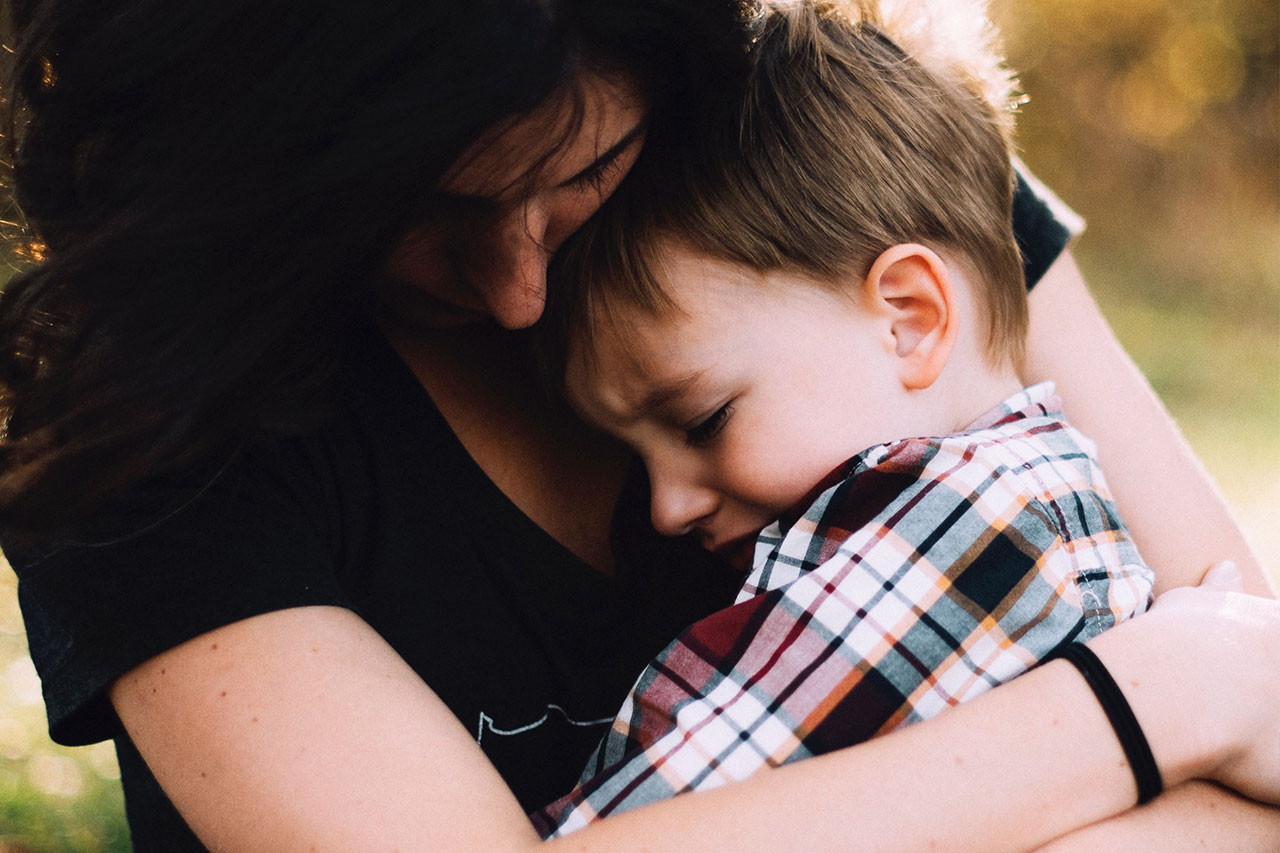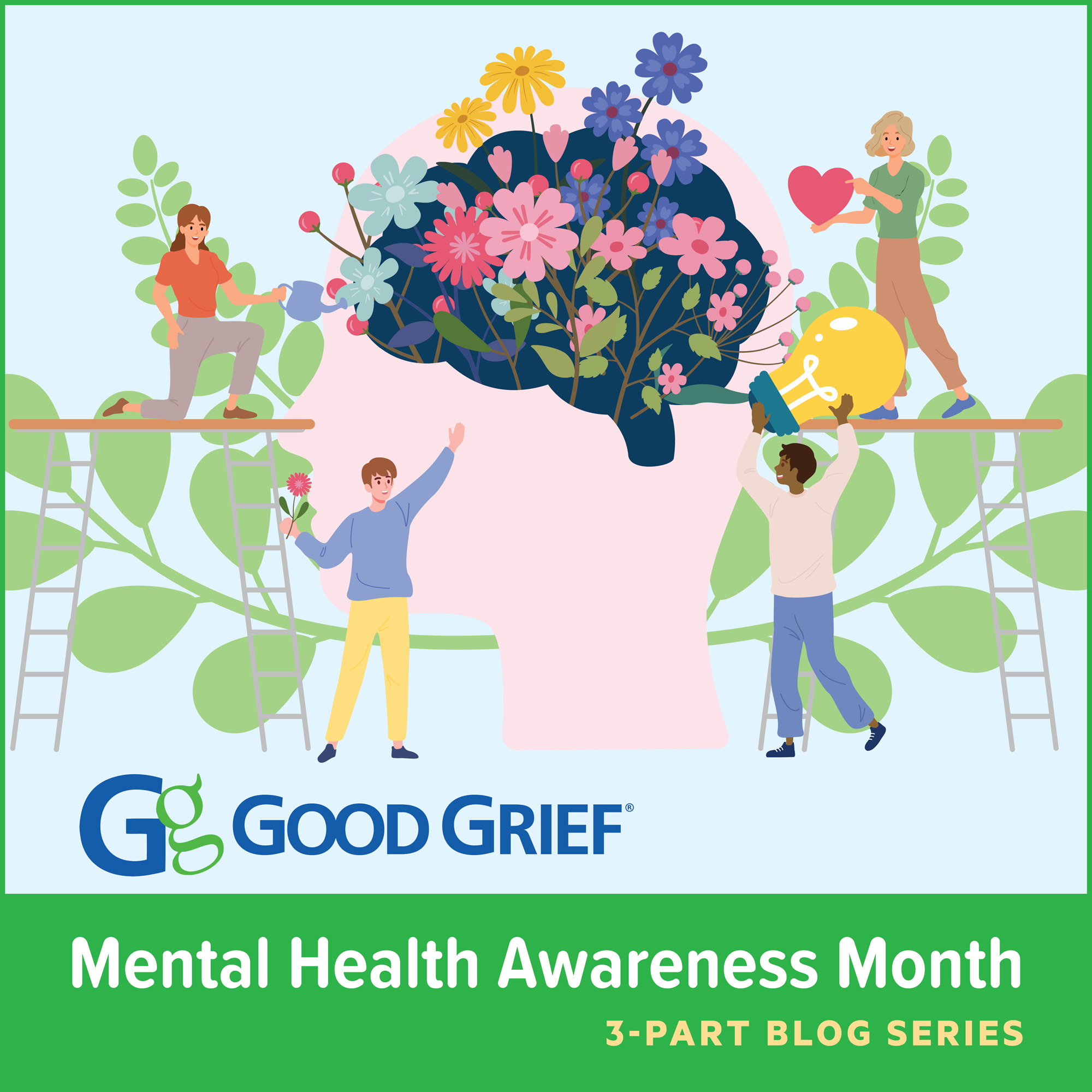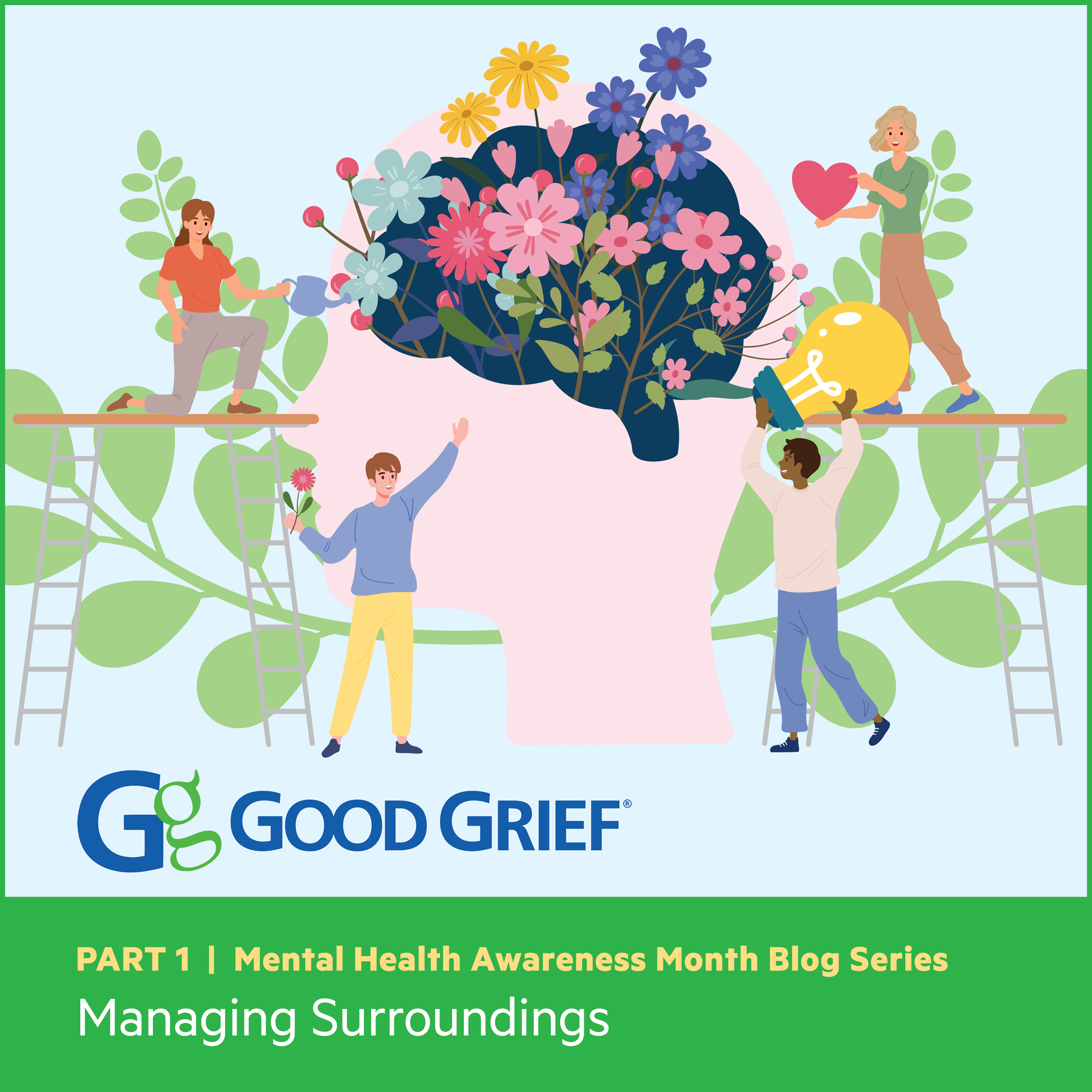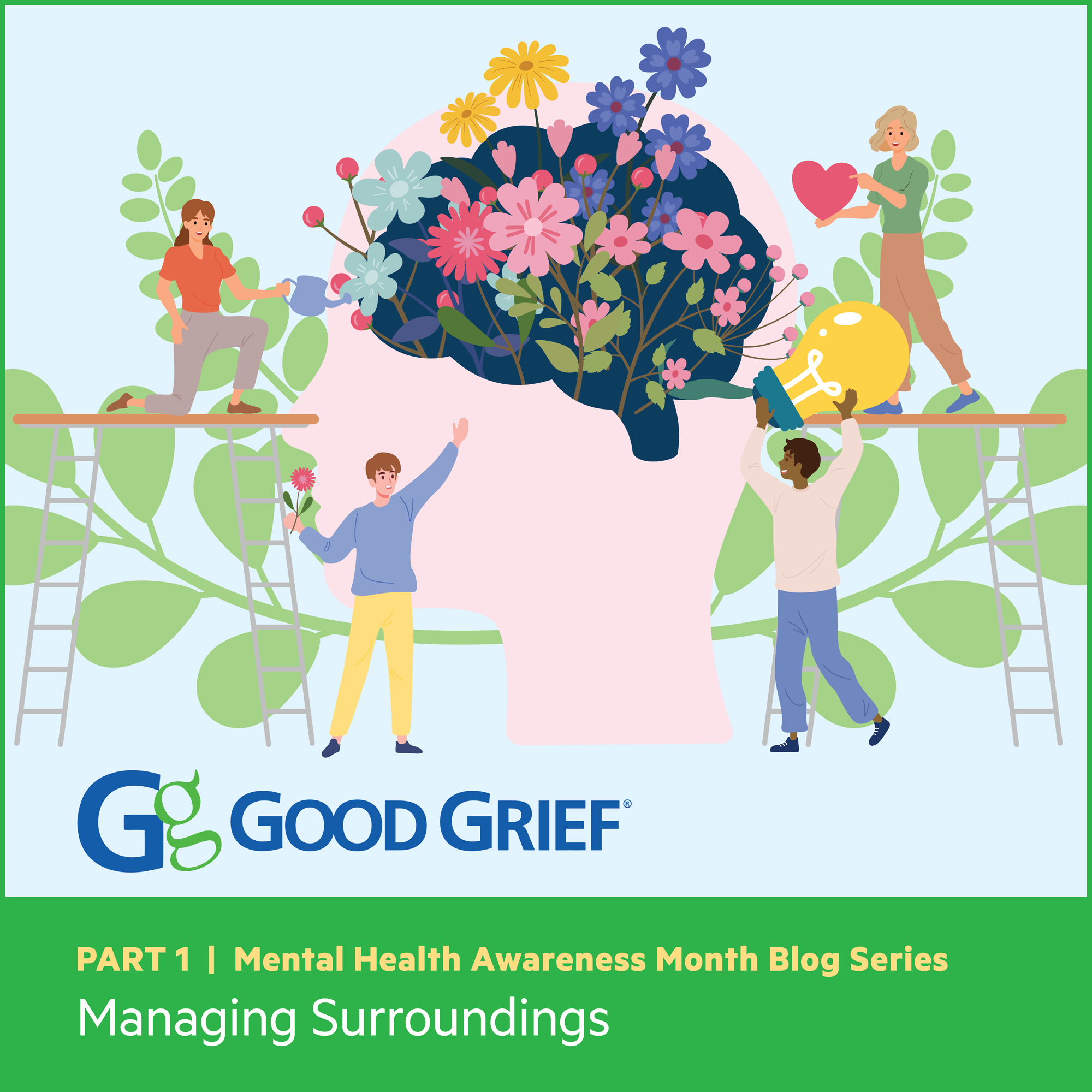
Common Grief Myths – The Grief Experts’ List
Five Grief Myths: New Thinking About Old Beliefs
Grief is a universal human experience everyone has or will experience during their lives. Losing a loved one can be one of the most difficult times in a person’s life. It is often overwhelming, isolating, and confusing. For many, the grieving experience is confusing because of common misconceptions and misunderstandings about how grief evolves, how long it lasts, its impact on children and families, and other questions. Below are five of the most common grief myths and the facts you should know.
Myth #1 – Grief Happens in Stages
Popularized in the 1970’s by Elisabeth Kubler-Ross in On Death and Dying, the theory that grief happens in five predictable stages – anger, denial, bargaining, depression and acceptance – is found everywhere in our culture.
Fact – While there are many aspects of grief, there is no singular grief process. Every person grieves uniquely in their own way depending on internal (emotional and psychological) and external (support systems and community) factors. Bottom line: grief is not an experience that fits neatly into assigned to categories or stages.
Myth #2 – Time Heals All Wounds
This is a common cliché in the world of grief. You may have heard this or repeated it yourself. The underlying assumption that, with time, grief – like a physical wound – heals or simply goes away. There may be a scar left behind but healing eventually takes place.
Fact – Grief has no timeline. This doesn’t mean the intensity of the experience will last forever. Instead, think of grief as something that will evolve over time becoming more manageable and less intense with the support of family, friends, and the community. Removing assumptions about a timeline for grief helps us be more prepared for unexpected, difficult days now and in the future.
Myth #3 – The Goal is Closure
This myth assumes grief can be compartmentalized simply by closing the door as if it didn’t happen in the first place. When closure is the goal, the focus is all about moving on from someone’s death to get on with our lives.
Fact – We don’t just get over it. We don’t just move on. Grief is a lifelong process. It can appear in cycles and present itself intensely even years after death. Instead of closure, the goal of grief should be integrating it into our lives – strengthening our continuing bond to the person who died, finding ways to keep them in our lives, sharing our story and processing our feelings.
Myth #4 – Kids Don’t Grieve
Many people believe that children, especially younger ones, don’t really grieve. Because the grief of young children often sounds nothing like an adult who is grieving, it is wrongly assumed that children don’t grieve.
Fact – All kids grieve. Starting at birth, a child will grieve the death of a parent. Infants can become clingy or colicky when sensing something is wrong and they don’t smell or see mom. Grief for kids is emotional, intellectual, social, and physical. A child’s level of understanding of death as well as their needs will vary depending on their age.
Myth #5 – Kids Can’t Handle Grief
Deep within many of us is the drive to protect our children from potential harm. We do this by avoiding talking about the person who died, acting as if nothing has happened. This is an instinctual response. Our young need protecting. Death is scary, complicated, and confusing. How can our kids understand, and why expose them to this painful experience? It’s not hard to see why parents respond in this way when loss occurs.
Fact – Children need honesty to better understand what is happening when someone dies. Adults often tell “white lies” or “sugarcoat” the death of pet, acquaintance or loved one to protect kids from pain. But doing so inhibits their ability to fully process what has happened. Giving our kids the time, attention, and tools to help them process their grief empowers them to develop healthy coping skills that help build resilience today and in the future.
These are just the most common myths about grief. Ask anyone and you will hear other grief myths. They persist because of our culture’s discomfort with grief. But recognizing these myths and the facts about grief is an important step in embracing grief as a natural experience in our lives.
Reach out to us online for additional resources and tips.




